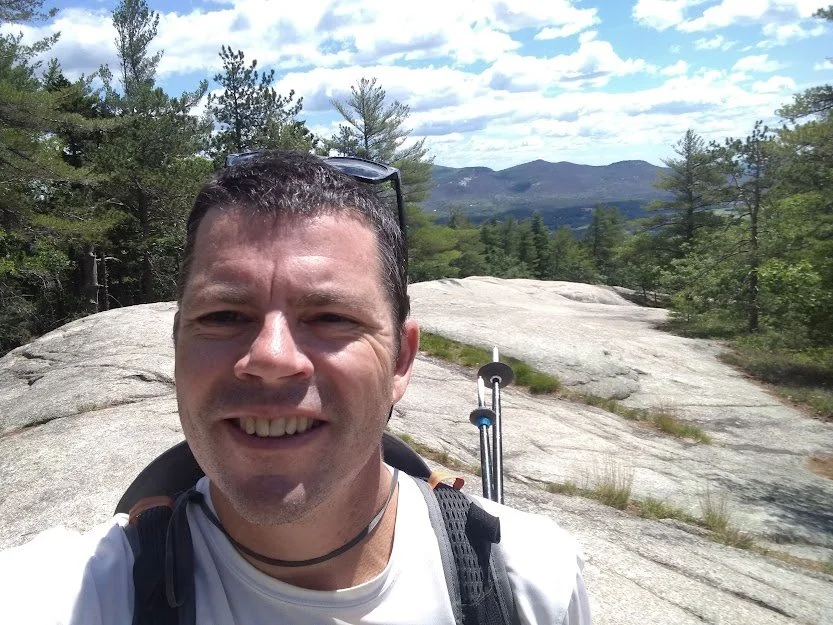
Plugging for a Renewable Future
As its name implies, Clean Energy NH (CENH) is focused on accelerating the use of renewable energy in the Granite State. And while that’s a tall order for a state that has historically relied heavily on fossil fuels, it’s an undertaking that improves the environment, economy, and quality of life for residents and visitors alike.
The Concord-based organization is led by Sam Evans-Brown, who seems more interested in impact and results than hierarchy.
“It’s really a solutions oriented staff, with a culture of problem solving," says Evans-Brown. “We want to be the experts and the entity that people turn to for clean energy.”
The non-profit has 13 employees and celebrated its 20th anniversary last year. Its stated mission is “to lead NH’s clean energy transition” and, by all indications, is doing just that.
GO: Sustainable Tip of the Month
Organizations interested in creating long-term value–which presumably most are–might consider heading down the sustainability trail. Whether it’s smaller steps like reducing energy use, or more transformational actions, such as streamlining operational systems, the financial benefits can be significant.
Taking proactive sustainability measures is deemed by many organizations as a key component for meeting their business objectives. Case in point: A Morgan Stanley survey found that corporate respondents view value creation to be a key reason for pursuing sustainability initiatives. Interestingly, a significant majority of executives stated that the rationale for taking the sustainability route was not because of outside forces, such as pressure from activists or media exposure, but rather to enhance value. Indeed, another Morgan Stanley report demonstrated that 88 percent of global companies view sustainability as a value creation play.
A challenge, however, is that incorporating sustainability measures can require upfront investments. With government incentives quickly evaporating, businesses should consider working with groups like CENH and investors to complete their sustainability objectives.
Katharine Cusack, CENH Small Business ECR and Policy Associate, says the ECR program has successfully deployed staffers across the state to help enterprises achieve some of their sustainability-related goals, such as developing on-site renewables.
“We have a team of seven circuit riders that work to help write grants and do different levels of no-cost technical assistance for these organizations,” said Cusack, adding that CENH works closely with renewable developers and efficiency contractors.
CENH also coordinates the statewide Drive Electric NH Coalition, which advances electrification efforts for the transportation sector. In fact, with the assistance of fellow GOA member Ski NH, CENH authored a report earlier this year outlining the challenges and opportunities associated with funding and deploying electric vehicle (EV) charging stations. (Even though NH trails the other New England states by a fair distance in terms of EV policy and funding, the Granite State has multiple opportunities to change course by adopting the solutions offered in the report.)
Moving beyond policy and technical assistance, CENH convenes a group called Young Professionals in Energy that assists early-career professionals with networking and leadership opportunities. The program aims to engage, educate, and empower private and public sector professionals who are connected–in any way–to the renewable energy or efficiency fields. Similar to GOA’s Rocktails & Streams events for the outdoor industry, Young Professionals in Energy is a way for those who share a passion for clean energy to interact in a variety of capacities.
In the end, federal funding that supports programs like the Energy Circuit Rider (and a host of other critical clean energy initiatives) is uncertain. However, CENH remains committed to advancing the cause of helping Granite Staters access more alternative energy and efficiency opportunities.
“Politics in the U.S. aside, the whole world is moving in this direction because it’s the most cost effective thing to do. I am very bullish on the future of clean energy,” Evans-Brown concludes.
Last year, CENH actively supported several key pieces of legislation–signed by the governor–that address renewable energy planning, transmission, and employment. The group also effectively opposed bills that would have stifled energy efficiency updates to building codes, as well as limiting cities and towns from pursuing cost and energy saving strategies.
“We live in a world of good technology and bad policy, but that’s better than a world of bad technology and good policy,” says Evans-Brown. “We’re working to help the politics catch up with the technology.”
In addition to its extensive policy work, CENH is involved in several areas that rely on collaboration and technical expertise.
For instance, the Energy Circuit Rider (ECR) is a free program that works with small businesses, municipalities, farms, and non-profits to navigate grant and tax incentives related to energy efficiency, renewables, and other cost-saving practices.
About the Author
Andrew Schuyler splits his time between Conway, NH and Melrose, MA. He serves on the Board of the White Mountains Interpretive Association and has a background in journalism, sustainability, government affairs, and parenting. Andrew remains optimistic that one day his kids will develop an affection for Ultimate Frisbee and Eddie Vedder. Reach him at andrewschuyler@hotmail.com.




